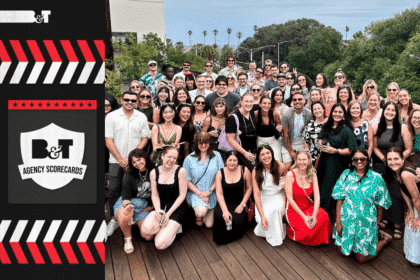Somewhat akin to Oppenheimer agitating for world peace, Adobe continues its support for the clear identification of deep fakes and misinformation.
You can’t put the genie back in the bottle, and to that end, Adobe, nor anybody else, can take away its editing tools like the ubiquitous PhotoShop from existence. To its credit, however, Adobe has been working hard to raise awareness of fake news and is collaborating as a founding member of the Content Authenticity Alliance to bring tools to market that allow consumers to know whether what they’re looking at are real or digitally altered.
For those who don’t know, the Content Authenticity Alliance (CAI) is a community of media and tech companies, NGOs, academics, and others working to promote adoption of an open industry standard for content authenticity and provenance. Ironically, one of the other two founding members was Twitter. The other is the New York Times. It was founded in 2019.
From its humble beginnings, the CAI has gathered significant momentum in the past year.
Today, Adobe released an update to Firefly that will bring users a new level of creative control with the Structure Reference capability in our Text to Image model on the Firefly web application. The new feature enables users to easily apply the structure of an existing image to newly generated images using Firefly. With the introduction of this new feature, Adobe said its continuing to reaffirm its commitment to developing generative AI responsibly by automatically attaching Content Credentials to all Firefly-generated outputs, allowing people viewing digital content to see whether it was created or edited with AI.
Further Adobe announced that Content Credentials will be supported in Adobe Experience Manager (AEM) Assets. This means that Content Credentials will be attached to Firefly generations or assets created or modified with Firefly-powered features in Express and are designed to follow the assets through the enterprise content supply chain, including as they’re added to AEM Assets.
As an example, imagine an enterprise company having a considerable brand-approved asset library that includes assets created with Firefly or within Express. When those assets are signed with Content Credentials to include important brand information or to denote that generative AI was used in the creative process, the metadata will follow the assets into AEM Assets and beyond as the company’s marketing team create additional content based on the original assets. This is vital step to ensure the asset’s metadata follows the content as it’s disseminated online downstream for consumers who may want to verify the credentials.
BBC News, recently announced its implementation of Content Credentials, which are now embedded to its images and to verify content provenance and authenticity, while also helping counter possible disinformation when the content is shared outside the BBC.
OpenAI, announced support for Content Credentials for images generated by DALL·E 3, which is now available and future support in its new video offering Sora.
Meta recently announced updates to its standard for labelling AI-generated images, including plans to build on the C2PA’s industry standard solution for adding provenance to digital content in Facebook, Instagram and Thread.
Google joined the C2PA steering committee and is actively working to implement Content Credentials across its products and services.
Nikon continued to discuss its commitment to bringing Content Credentials, based on the C2PA specifications, into upcoming camera models, plus its collaboration with international news agency, Agence France-Presse (AFP), to begin practical verification of this image provenance function – specifically to support authenticity and reliability in photojournalism and the fact-checking process.
From a membership perspective, new Content Authenticity Initiative members include PricewaterhouseCoopers (PwC), NBCUniversal News Group, WPP and Autodesk, which all share in the CAI’s commitment to combatting the threat of misinformation for consumers, ensuring creators get credit for their work, and will plan to support Content Credentials.
The CAI is now at over 2,500 members – all unified in driving widespread adoption and support of a provenance and transparency-based approach to digital content online with Content Credentials.








